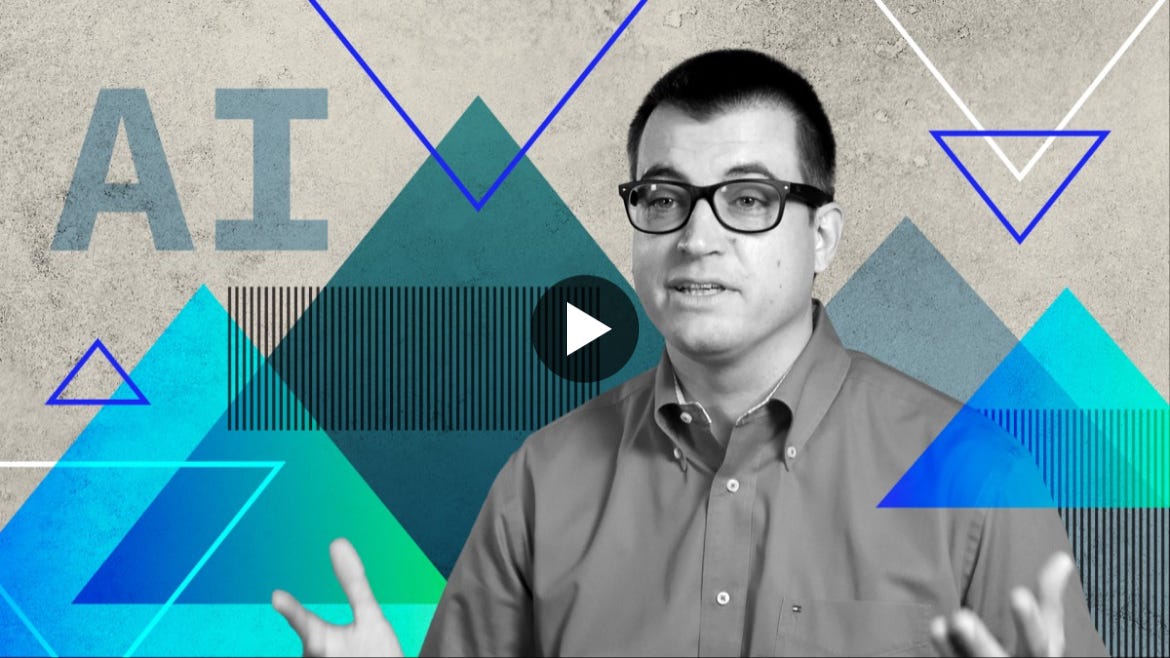AI-Driven Recruiting: Just A Numbers Game?
How AI & Agents Accelerate The Cat-And-Mouse Game Between Applicants And Businesses
A few weeks ago, I discussed the implications of AI agents on the way we work with a group of leading market analysts. One of the topics we covered was the impact of AI agents in HR. In a tough job market such as the current one, the few companies that are looking to hire are being overwhelmed by a flood of applications. Conversely, individuals applying for roles are looking for ways to increase their chances of having their resume seen (screened). This situation is already creating a scale problem.
Assuming that increased AI adoption by businesses will lead to further changes in skill and labor demand over the coming years, this scale problem will likely increase even further. Human recruiters will no longer be able to keep up with the volume of incoming resumes. AI to the rescue? Maybe?
Increasing Efficiency with AI and Applicant Tracking Systems
The average time a recruiter spends looking at a resume is 7 seconds, according to Indeed.com. That number will soon be closer to zero. You are lucky if a recruiter sees your resume at all. Because AI promises ever-increasing efficiency.
Companies have been processing resumes electronically for years, moving candidates through the recruiting process with the help of Applicant Tracking Systems (ATS), and heuristics and rules eventually gave way to AI. In 2018, Amazon1 was famously in the news for shutting down its resume-matching application after it was found to include historic biases, identifying male applicants as being a better fit for roles than women. The same year, I ran a research study with about 50 recruiters in Germany on using AI for candidate screening. At the time, recruiters shared that they would use an AI-based resume screening tool if it made similar (or better) decisions than human recruiters did alone.
Since then, AI has not only become an efficiency booster for companies. The rise of Generative AI has given applicants access to powerful tools and assistants. Whether to improve their writing, beef up their past accomplishments, or help tailor their resumes to better fit the job description, applicants can now compete at a broader scale.
ONLINE COURSE — Agentic AI: Challenges and Opportunities for Leadership
Prepare for the challenges and opportunities of agentic AI as you lead AI transformation in your organization. Maximize the benefits of these technologies while minimizing disruption.
Recognizing AI Agents as a Productivity Booster
As AI agents mature further and become accessible to consumers as well, the following (simplified) scenario might become the new reality:
An applicant uses an AI agent to search for open job postings online.
A second agent tailors the applicant’s resume to that job description and asks another one to manage the actual application.
Lastly, a fourth agent tracks the application for real-time updates when needed.
The company at which the applicant has just submitted their resume uses:
An agent to review and rank the resumes for a given role.
If the candidate is not suited for the current role, the agent routes the resume to other agents who have open roles that are more closely aligned with the candidate’s profile (provided the candidate has agreed to their resume being shared).
If the candidate’s skills do align well with the requirements listed in the job description, a team of agents takes over the scheduling, answering questions about the interview process, etc.
Maybe, only then will the candidate talk to a human recruiter or hiring manager.
The risk is that everyone is “just a number” to the other party—companies included. It’s an escalating cat-and-mouse game with high stakes: talent and money. So, who are the real winners in this?—The vendors of AI agent systems and platforms, selling to both sides. But what does all of this lead to?
What Comes Next?
When I asked recruiters in 2018 whether they could see their company using AI to fully automate the hiring process (including making the final hiring decision), their feedback was uniform: they would always want a human to make that decision. After all, a candidate would need to fit into the team and organization, and AI would not have all the needed details to make a reliable hiring decision.
Make no mistake, though. Even if a candidate quickly gets through screening, they will still need to have the skills to perform the job they’ve applied for. If they don’t, the hiring manager and team will notice quickly. If recruiting passes too many underqualified candidates to the hiring manager, the feedback loop toward recruiting will also work quickly.
Yet, here we are, and hiring managers can already use Generative AI to draft a job description or generate interview questions—whether using ChatGPT or their standard HR applications. In the haste and rush of busy workdays, interview preparation often falls short. AI can save time and the hiring manager’s face. In a constant race, companies and applicants will find ways to manage the flood of applications and to apply at scale.
To assess a candidate’s skills, assignments that candidates need to complete on the spot and behavioral interviews will likely become more important—assessments that candidates cannot research or generate the answers to instantaneously. In real-life situations when split-second decisions are needed, we can hardly consult ChatGPT and the like either. Will in-person, “offline” interviews be in style again?
Conclusion
In the race for ever-increasing efficiency, both businesses and applicants leverage AI to gain an advantage—whether it is to quickly sift through large volumes of applicants or to delegate large parts of the application process. Eventually, though, both sides have a common interest: to work with (and for) each other in exchange for money.
Lastly, treating each other like a number during the application process will have real-life challenges and consequences once employment does become permanent, and the truth about company culture and one’s skills come to light.
Who will “win” in this race of AI-supported efficiency?
Explore related articles
Become an AI Leader
Join my bi-weekly live stream and podcast for leaders and hands-on practitioners. Each episode features a different guest who shares their AI journey and actionable insights. Learn from your peers how you can lead artificial intelligence, generative AI & automation in business with confidence.
Join us live
January 14 - Ian Barkin (Founder, Investor, and Author) will share how to scale AI programs with citizen development.
January 21 - Nico Bitzer (CEO & Founder of Bots & People) will be on the show and discuss how large enterprises can increase the AI literacy of their teams with cohort-based upskilling.
February 11 - Joe Reis (Founder of Nerd Herd) will be on the show when we talk about balancing your passion for AI against the risk of burning out.
February 18 - Eduardo Ordax (Generative AI Lead at AWS) will join and share how you can build your first AI agents.
Watch the latest episodes or listen to the podcast
Follow me on LinkedIn for daily posts about how you can lead AI in business with confidence. Activate notifications (🔔) and never miss an update.
Together, let’s turn hype into outcome. 👍🏻
—Andreas
Reuters. October 11, 2008. Insight - Amazon scraps secret AI recruiting tool that showed bias against women. https://www.reuters.com/article/world/insight-amazon-scraps-secret-ai-recruiting-tool-that-showed-bias-against-women-idUSKCN1MK0AG/










I don't see how not having some degree of interpersonal interactions in the interview process can yield the results either side wants. Yes, a resume can make claims of experience and expertise. And Yes, assessments and use of technology can provide an indication of competency. But I can't see at this time how tech can assess for cultural fit and "vibe" of a person and their nuances (e.g. body language, interpreting responses, language command, etc.), more effectively than a human.